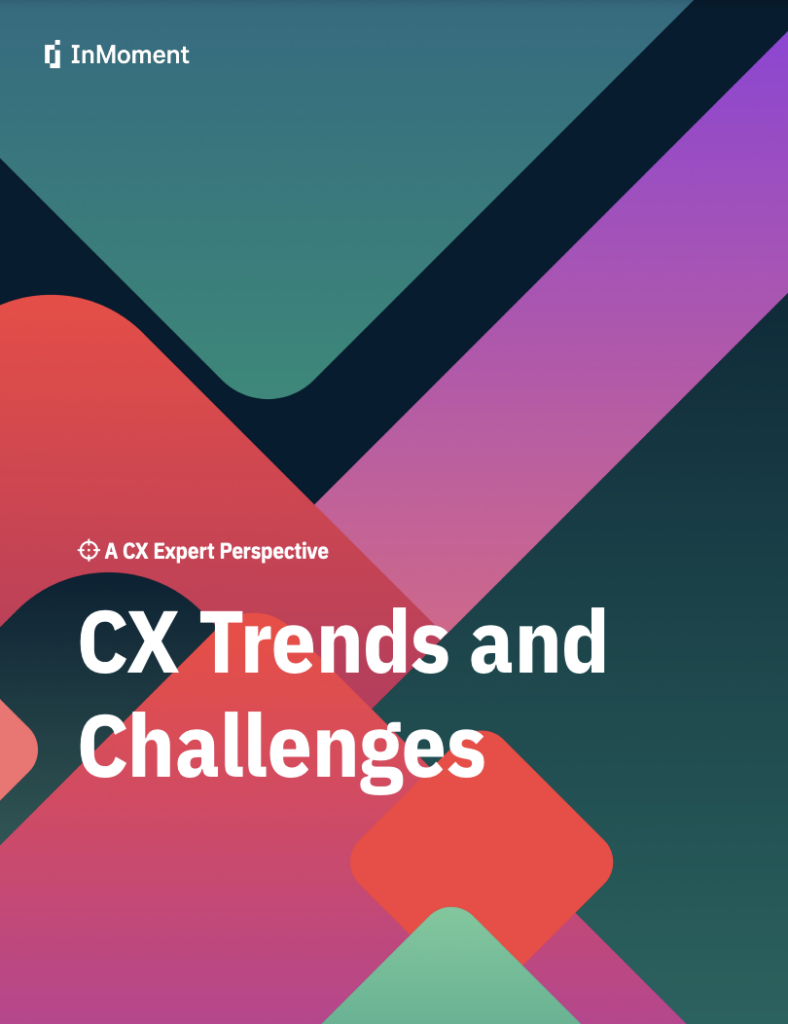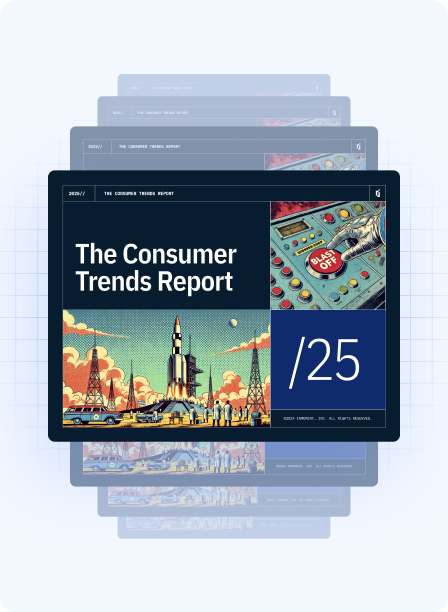Elevating Guest Experiences in Hotels with Integrated CX

The hotel industry took a major hit during the pandemic, but the aftermath was even more curious. So much time locked inside caused a massive correction. Out of nowhere, citizens were flocking in droves to distant lands, as travel by plane, sea, and car surged.
The coming year is no exception, as consumers across the globe plan to make travel a priority, despite ongoing economic uncertainty. According to a recent report, 81% of consumers plan to travel the same amount or more in 2024, compared to 2023.
Hotel guests have lofty expectations for excellent experiences; they also have feedback data coming at them from all directions. It’s a common struggle to effectively analyze this data, and then leverage it to optimize their customer experience (CX) efforts. This is where integrated CX comes into play.
What is Integrated CX
Integrated CX platforms unify customer feedback signals from a multitude of feedback signals (listed below), blending them into a cohesive whole. Utilizing AI, this system organizes and deciphers the collected data, and makes sense of it thereafter. This method represents a novel and comprehensive strategy for an industry that, for many years, has predominantly focused on survey data, offering a limited perspective.
Here are some of the main feedback signals:
- NPS
- Surveys
- Call Center Data
- Reviews
- Social
- Insights/Spotlight
Integrated CX platforms have the power to interpret these varied, disparate signals into a unified view. Hotels can then leverage these insights to elevate guests’ experiences before, during, and after their reservation.
Let’s take a closer look at how integrated CX and other AI-powered tools are shaping hotel experiences—and how the best hotels and resorts are leveraging this winning combination to provide intelligent, customer-centric experiences that grow sales and foster loyalty.
Hyper Personalization for Every Traveler
Modern consumers have an overwhelming amount of choice across all product and service categories. Generic, one-size-fits-all communication and experiences aren’t an effective way to reach them. Instead, 71% of consumers expect personalization from the businesses they choose. What’s more, they expect brands to adapt to as their needs and expectations inevitably evolve. Hotel customers are no exception.
Each traveler is different, with unique needs, preferences, and motivations for travel. Hotels must work to understand their customers’ preferences and use those insights to deliver tailored experiences throughout the journey. Integrated CX makes this a reality.
Integrated CX consolidates customer signals from a whole host of sources, including transaction history, reviews, surveys, website activity, and social interactions (among others). These signals give hotels and resorts a 360-degree view of each customer, which can be used to fuel ultra-personalized experiences. Research from Salesforce found that 61% of customers say most companies treat them as a number. Hotels can set themselves apart from the competition by strategically leveraging integrated CX and AI to fuel personalized guest experiences.
Real-Time Service, Any Time of Day
In the past, consumers would book a hotel by working with a travel agent or picking up the phone. That’s no longer the case. Instead, a recent survey from Statista found that 72% of consumers prefer booking travel online.
Consumers are using their mobile devices to browse and book hotels. They’re engaging with hotels from any number of channels, including web browsers, mobile apps, messaging channels, social media, and review sites—among others. They expect instant engagement—any time of day. Today, AI-powered digital assistants or chatbots enable hotels to meet these expectations.
After the stay, hotels can leverage AI-powered chatbots to collect customer feedback and resolve outstanding issues. Chatbots can be an effective tool for enrolling guests in loyalty programs, increasing the chances of repeat business.
Intelligent Digitized Experiences
Hotel guests expect an experience. Friendly service, clean linens, and delicious food and drinks—the givens. But increasingly, guests also want outstanding digitized experiences—whether they’re researching their options, in the middle of their stay, or reflecting on their experience. Upon arrival, many want a mobile check-in experience, which allows for speed and convenience. During their stay, guests may use their mobile devices to get guidance on where to eat and things to do
AI-powered bots can help customers find the property that best suits their needs. Bots can also answer questions and provide information on things like availability, rates, and amenities that build customers’ confidence—and their likelihood of booking.
Guests can also use a hotel’s mobile app to get personalized content and recommendations during their stay. For example, they may find restaurant and attraction recommendations, based on their past interactions and feedback they’ve shared with the hotel brand.
Streamlined Operations and Experiences
Hotels have long collected guest feedback, transitioning from paper surveys and conversations at the front desk to digital channels. However, the prevalence of surveys has led to “survey fatigue,” especially among younger generations like Gen Z. These guests are less inclined to fill out surveys but are actively sharing their experiences on travel review platforms and social media.
This shift in feedback channels presents both an opportunity and a challenge for hotels. The feedback, whether direct or indirect, contains valuable insights for enhancing guest experiences and operations. The main obstacle is the nature of the feedback—a mix of structured and unstructured data, making it difficult to compile, analyze, and derive actionable insights.
AI Has Its Shortcomings, Too.
While AI holds the potential to revolutionize guest experiences in hotels, it brings with it significant challenges. The need for personalization in customer service requires an extensive collection of data, posing privacy concerns. Hotels must balance the use of AI with the responsibility of keeping customer data secure. A misstep in handling this data can severely damage a hotel’s reputation.
Moreover, the intricacies of AI, such as its potential for bias and inaccuracy, add another layer of complexity. The workings of AI systems like ChatGPT can be opaque, and their recommendations may not always be reliable. With the widespread use of AI in various sectors, the risk of data misuse and breaches increases.
In light of these challenges, the 2023 Edelman Trust Barometer highlights the growing importance of trust in brand relationships. Consumers are more likely to engage with and stay loyal to brands they trust. For hotels, this means prioritizing ethical AI practices and data security to build and maintain this trust. Successful navigation of these issues is crucial for harnessing the benefits of AI while ensuring customer satisfaction and loyalty.
A Final Word
AI has only recently hit the “mainstream”, but it’s already transforming the hotel guest experience. This will only continue as the technology evolves.
Hotel customers expect top-tier, personalized experiences at every touchpoint. While these enterprises have a plethora of data and customer feedback at their fingertips, it’s not always easy to analyze and leverage it. Integrated CX platforms, powered by AI, enable hotels to not only analyze this data, but identify opportunities to use it to improve CX.
In the coming year, consumers are prioritizing travel. However, they have plentiful options when it comes to hotels. The hotels that thrive will be those that deliver intelligent, AI-driven CX throughout the customer journey that’s personalized, yet secure.
References
Skyscanner. Travel Trends 2024. (https://traveltrends.skyscanner.com/). Access 1/19/24.
Mckinsey & Company. The value of getting personalization right—or wrong—is multiplying (https://www.mckinsey.com/capabilities/growth-marketing-and-sales/our-insights/the-value-of-getting-personalization-right-or-wrong-is-multiplying/). Access 1/19/24.
Salesforce. State of the Connected Customer. (https://www.salesforce.com/resources/research-reports/state-of-the-connected-customer/). Access 1/19/24
Statista. Travel Bookings: Online vs. Agency. (https://www.statista.com/chart/29622/travel-bookings-online-vs-agency/). Access 1/19/24
BusinessWire. Recent Study Reveals More Than a Third of Global Consumers Are Willing to Pay More for Sustainability as Demand Grows for Environmentally-Friendly Alternatives. (https://www.businesswire.com/news/home/20211014005090/en/Recent-Study-Reveals-More-Than-a-Third-of-Global-Consumers-Are-Willing-to-Pay-More-for-Sustainability-as-Demand-Grows-for-Environmentally-Friendly-Alternatives). Access 1/19/24.
Cornell. At the Forefront of ESG Leadership. (https://stories.business.cornell.edu/hotelie-100/forefront-of-esg/). Access 1/19/24.
Edelman. 2023 Edelman Trust Barometer. (https://www.edelman.com/sites/g/files/aatuss191/files/2023-06/Edelman_BrandTrust_Top10.pdf). Access 1/19/24.



